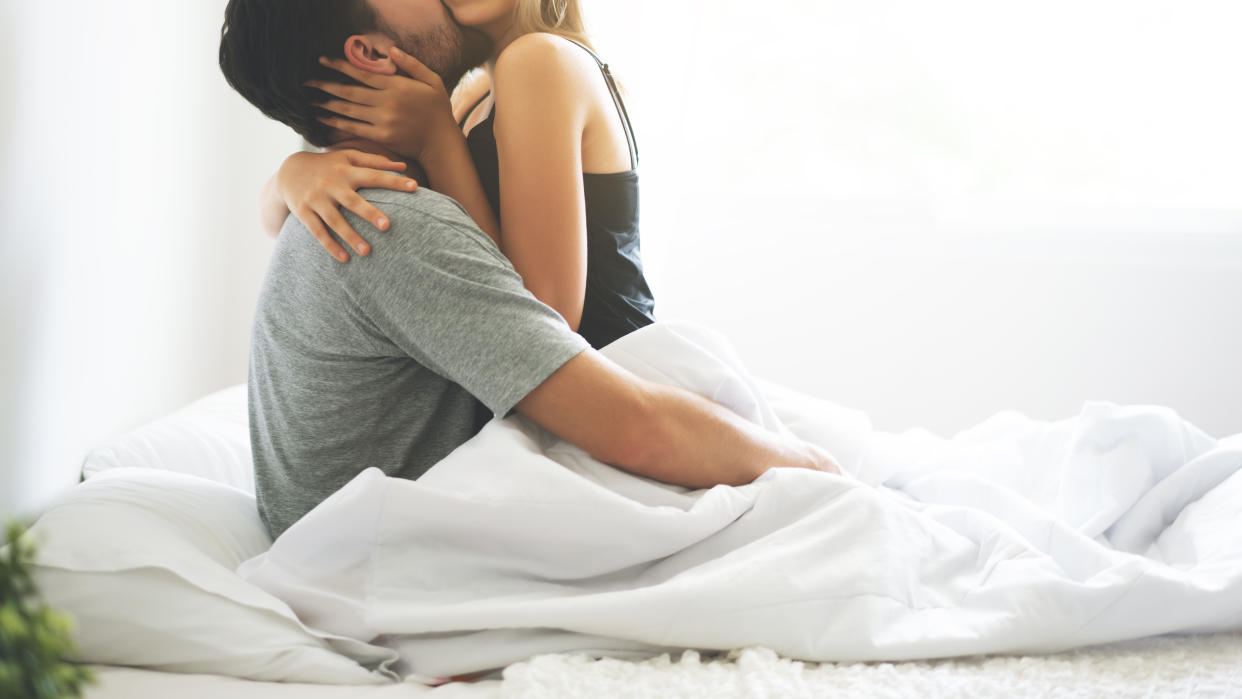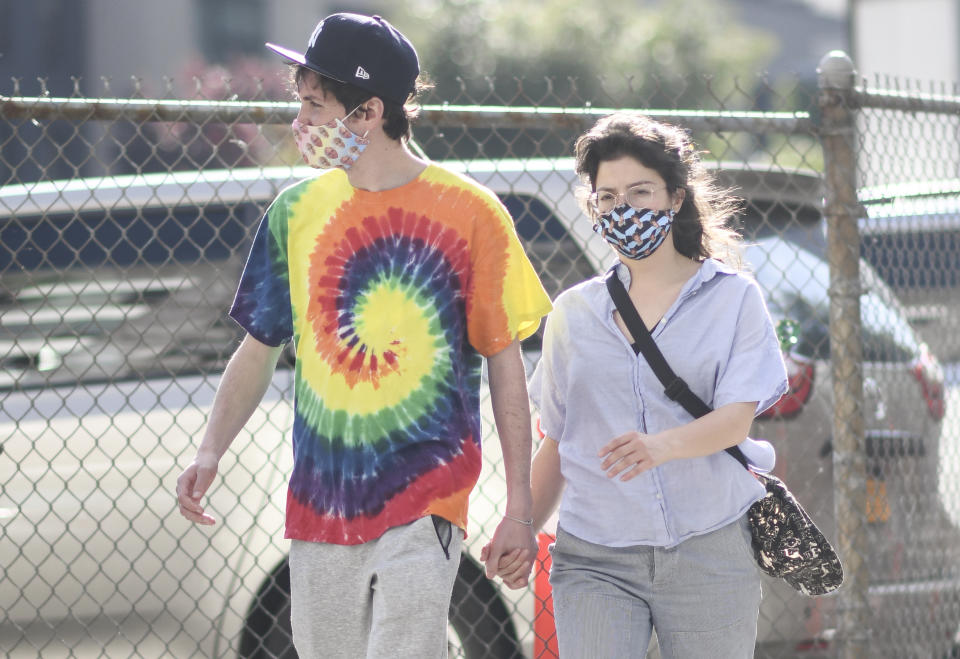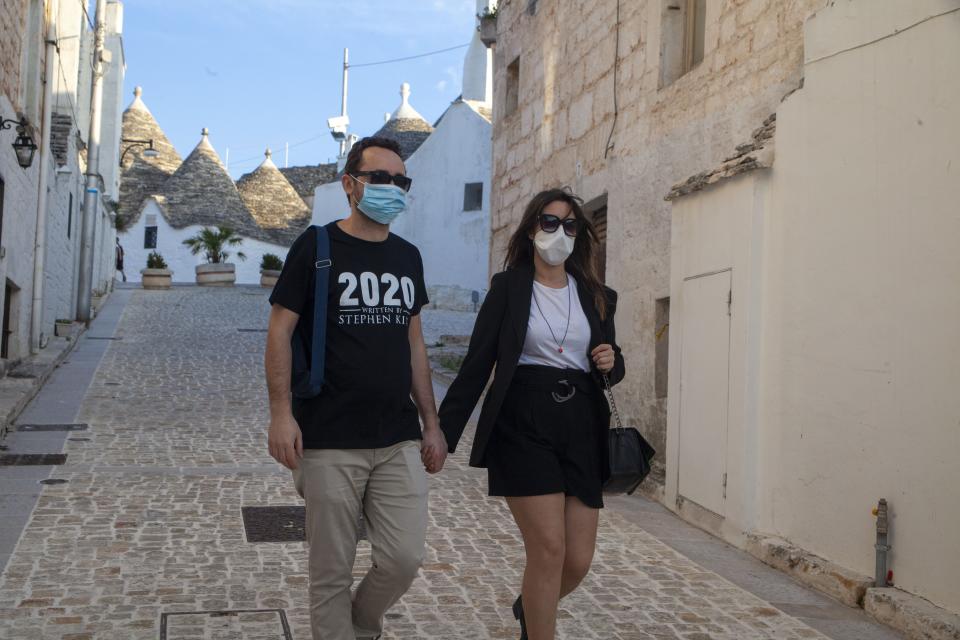Coronavirus: Only two in five UK adults sexually active during lockdown

Only two in five adults in the UK are sexually active during the coronavirus lockdown, research suggests.
Being cooped up at home with our significant other, scientists from Anglia Ruskin University in Cambridge expected couples to become more intimate during quarantine.
They were surprised to find the reverse to be true, with just over a third (39%) of the 868 adults they surveyed claiming to have taken part in any sexual activity in the past week.
The scientists argued sex has a “plethora of physical and mental health benefits”, and could help ease stress and anxiety amid the unsettling situation.
Early research suggests the coronavirus is mild in four out of five cases, however, it can trigger a respiratory disease called COVID-19.

Single people ‘not able to meet sexual partners’
“When starting this research we expected there to be a high level of sexual activity while social isolating at home, but interestingly we found a very low level,” said study author Dr Lee Smith.
“This low level of sexual activity could be explained by people currently feeling anxious and stressed owing to the pandemic and not being in the mood to engage in the act.”
The UK government implemented lockdown on 23 March.
The scientists were curious how the extreme restriction would influence Britons’ actions between the sheets.
“Sexuality is complex and encompasses a myriad of phenomenon that include partnerships, behaviours, attitudes, identity, orientation, beliefs and activity,” they wrote in The Journal of Sexual Medicine.
The team asked adults between 25 and 34 how many times on average they had been sexually active per week of lockdown.
Results revealed 39.9% claimed to be intimate at least once every seven days, with the remaining 60.1% not taking part in any form of sexual activity.
Sex was more common among the male participants, those who were married and those who drank alcohol.
“Those who are not married or cohabiting may not currently be able to meet up with their sexual partners and similarly those who use online apps to facilitate casual sex will currently not be able to do this”, said Dr Smith.
Sex has ‘plethora of physical and mental health benefits’
The results also revealed the participants had more sex as lockdown went on.
The scientists wondered whether more time self-isolating would automatically lead to a higher chance of sex during lockdown or if people are using intimacy to ease stress and counteract boredom.
“Moreover, in modern times people lead busy lives and may have little discretionary time to spend with their intimate partner,” wrote the scientists.
“COVID-19 self-isolation may have disrupted daily activities that take time from one’s day, such as commuting to work, this time may be being spent with one’s partner allowing them to reconnect with increasing days of isolation and consequently engage in sexual activity.”
The scientists stressed the benefits of intimacy cannot be understated.
“A frequent and trouble-free sex life is associated with a plethora of physical and mental health benefits”, they wrote.
Sexual inactivity has been linked to everything from bladder problems and mental health issues to heart disease and poor vision.
Experts have previously warned the coronavirus could have a “pervasive” and “profound” impact on people’s emotional wellbeing, as many feel stressed, isolated and anxious.
“It is possible that maintaining an active sex life or reintroducing frequent sexual activity into one’s life during self-isolation [or] social distancing may mitigate some of the potential detrimental consequences of COVID-19 self-isolation,” wrote the scientists.
They want to see positive sexual health interventions included in wellbeing messaging amid lockdown.

What is the coronavirus?
The coronavirus is one of seven strains of a virus class that are known to infect humans.
Others cause everything from the common cold to severe acute respiratory syndrome (Sars), which killed 774 people during its 2002/3 outbreak.
Since the coronavirus outbreak was identified, more than 5.5 million cases have been confirmed worldwide, according to Johns Hopkins University.
Of these cases, over 2.2 million are known to have “recovered”.
Globally, the death toll has exceeded 350,500.
The coronavirus mainly spreads face to face via infected droplets expelled in a cough or sneeze.
There is also evidence it is transmitted in faeces and can survive on surfaces.
Symptoms include fever, cough, fatigue, slight breathlessness and loss of taste or smell.
The coronavirus has no “set” treatment, with most patients naturally fighting off the infection.
Those requiring hospitalisation are given “supportive care”, like ventilation, while their immune system gets to work.
Officials urge people ward off infection by washing their hands regularly and maintaining social distancing.
Watch the latest videos from Yahoo UK’s ‘Dating at a Distance’
Coronavirus: what happened today
Click here to sign up to the latest news, advice and information with our daily Catch-up newsletter
Read more about COVID-19
How to get a coronavirus test if you have symptoms
What you can and can’t do under lockdown rules
In pictures: How UK school classrooms could look in new normal
How public transport could look after lockdown
How our public spaces will change in the future
Help and advice
Read the full list of official FAQs here
10 tips from the NHS to help deal with anxiety
What to do if you think you have symptoms
How to get help if you've been furloughed


